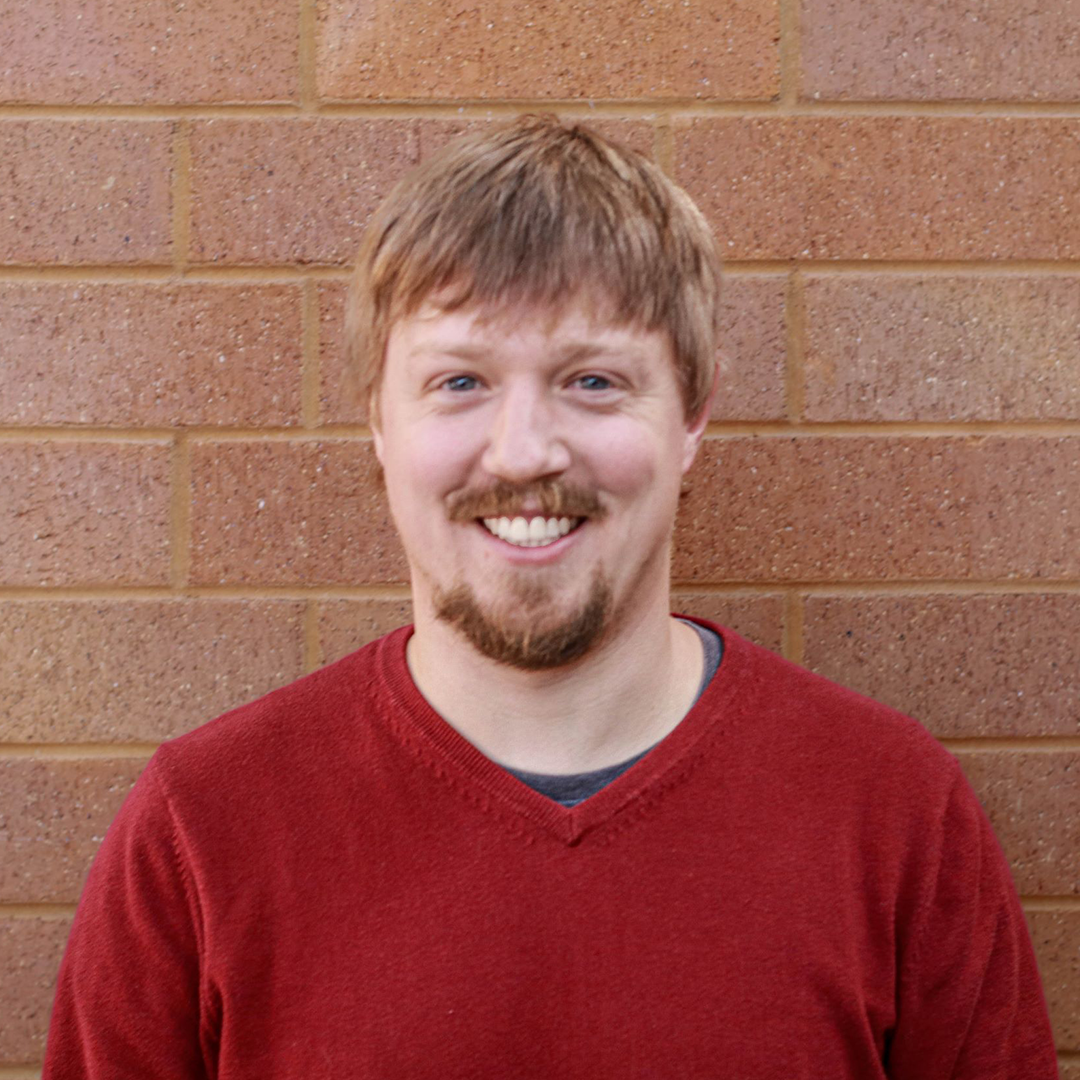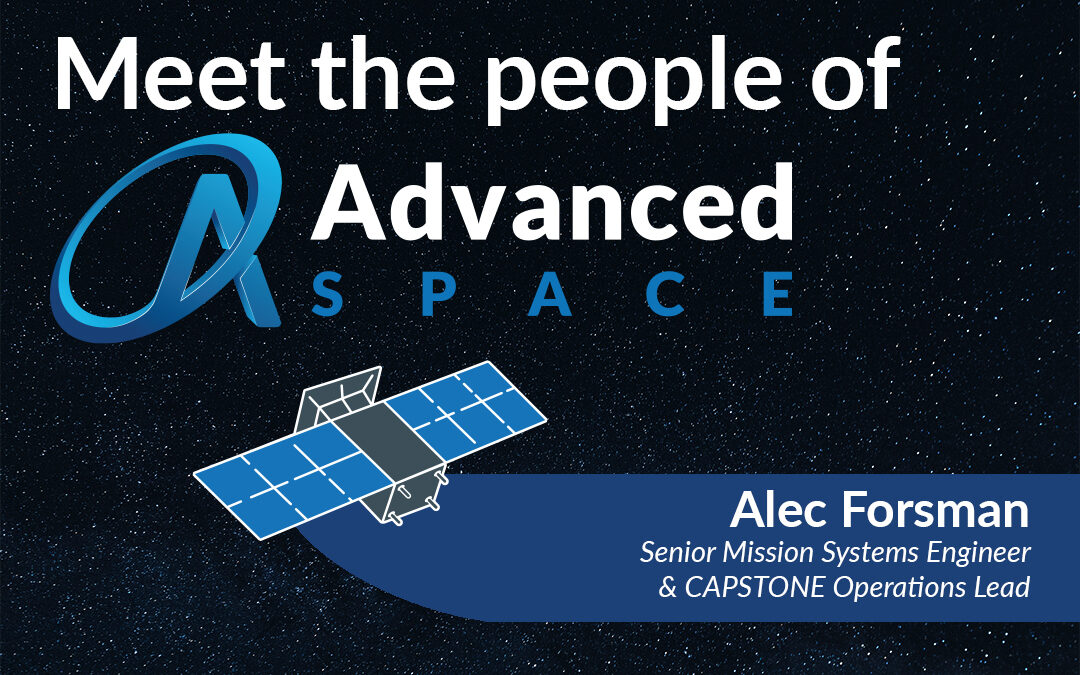
What has been your favorite project at Advanced Space and why?
Hands down, it has been CAPSTONE. It has just been such a unique and exciting experience being able to work on developing the mission from a concept into an operational spacecraft at the Moon. The experience has given me the opportunity to work with incredible engineers and learn so many new things. Another aspect that makes CAPSTONE so interesting for me is the development of the onboard CAPS technology. It’s been so rewarding being able to work on a technology that started out as just a Phase I SBIR concept back in 2017 and matured into something we’ve been able to demonstrate successfully at the Moon 6 years later!
What are the unique challenges Advanced Space solves for the diverse types of missions?
Where we excel as a team is coming up with unique solutions that build off of and improve upon traditional approaches. This is evident throughout the diversity of projects we have going on whether it’s sending a CubeSat to the Moon or using onboard machine learning applications to autonomously design and optimize maneuvers in space. We are able to use our astrodynamic and navigation expertise to really push the capabilities of spacecraft and where they are able to go.
You’ve been the Operations Manager for the Advanced Space CAPSTONE™ mission. How does that experience prepare you to support other missions?
The biggest thing for me is the knowledge gained from operating an actual mission. Being able to support the design, integration, and test of the spacecraft while also having the opportunity to operate it, I’ve often found myself reflecting on things I could have done better. Thinking, “Man, it would have been much easier to test this on the ground before launching” or “I wish we would have spent more time thinking about this during the design phase.” I’ll be able to take these lessons learned and apply them to the multitude of other missions we have going on at Advanced Space.
Why do you think Advanced Space was able to persevere during the challenges of CAPSTONE?
CAPSTONE is supported by an amazing team across all organizations involved in the mission. Throughout the many challenges CAPSTONE faced on its journey to the Moon, it has always been evident that the team is committed to working together to solve problems. We couldn’t have gotten to where we are now without the amazing support we’ve gotten from the teams at NASA, Terran Orbital, the Deep Space Network, and our vendors.
How did you end up working at Advanced Space?
Growing up in a small town, I really didn’t have any clue what I wanted to do in college. Originally, I had selected Architecture as my major out of ignorance, thinking it would be similar to Civil Engineering, but I quickly found out that wasn’t the case. Architecture had more to do with design and sketching and less to do with math, which is something I enjoy. I quickly worked to pivot to a more math-based major and engineering seemed like an obvious choice. I still didn’t really know what I wanted to do with my life or which type of engineering I’d enjoy, so I chose aerospace engineering simply because it was first, alphabetically, on the list. Going through the aerospace program at the University of Minnesota, I thoroughly enjoyed the classwork, but the program was more geared towards aviation than astrodynamics. I found myself wanting to do more astrodynamics, and I also wasn’t quite ready to take the next step in my career path getting a full-time job. I applied to graduate school at the University of Colorado – Boulder and Purdue and was lucky enough to get accepted by both universities. Growing up in rural Minnesota, I was pretty sick of corn fields by that point in my life, so mountains seemed like the obvious choice. I headed west. The Astrodynamics and Satellite Navigation program at CU really cemented my desire to work in the aerospace industry and after graduation, it was finally time to find a full-time job. Advanced Space, a company with just a handful of employees at the time, offered me a job, and here I am over six years later.
What’s unique about Advanced Space?
I think one of the most enticing aspects of working at Advanced Space is the combination of the small-team atmosphere and the opportunities engineers have to grow their careers. The responsibilities that may take tens of years to earn at a larger aerospace company are earned much more quickly here. Additionally, I enjoy the vast background and knowledge the engineers have across the company and their willingness to help solve problems and offer different approaches.
What would you say is unique about your background?
I’ll sometimes find myself reflecting on how a kid working on an egg farm in rural Minnesota wound up in Colorado operating a spacecraft at the Moon. I wouldn’t say it’s “unique” to me, but maybe more something that I’m proud about my background is that I’ve always worked hard, which was taught to me early on in my life. I worked packing eggs in high school, worked three part-time jobs to get through college, graduated early from my Master’s program, and now I get to work on cool space stuff. It wasn’t always a clear path to get to where I am now, but I’d say it turned out pretty well.
